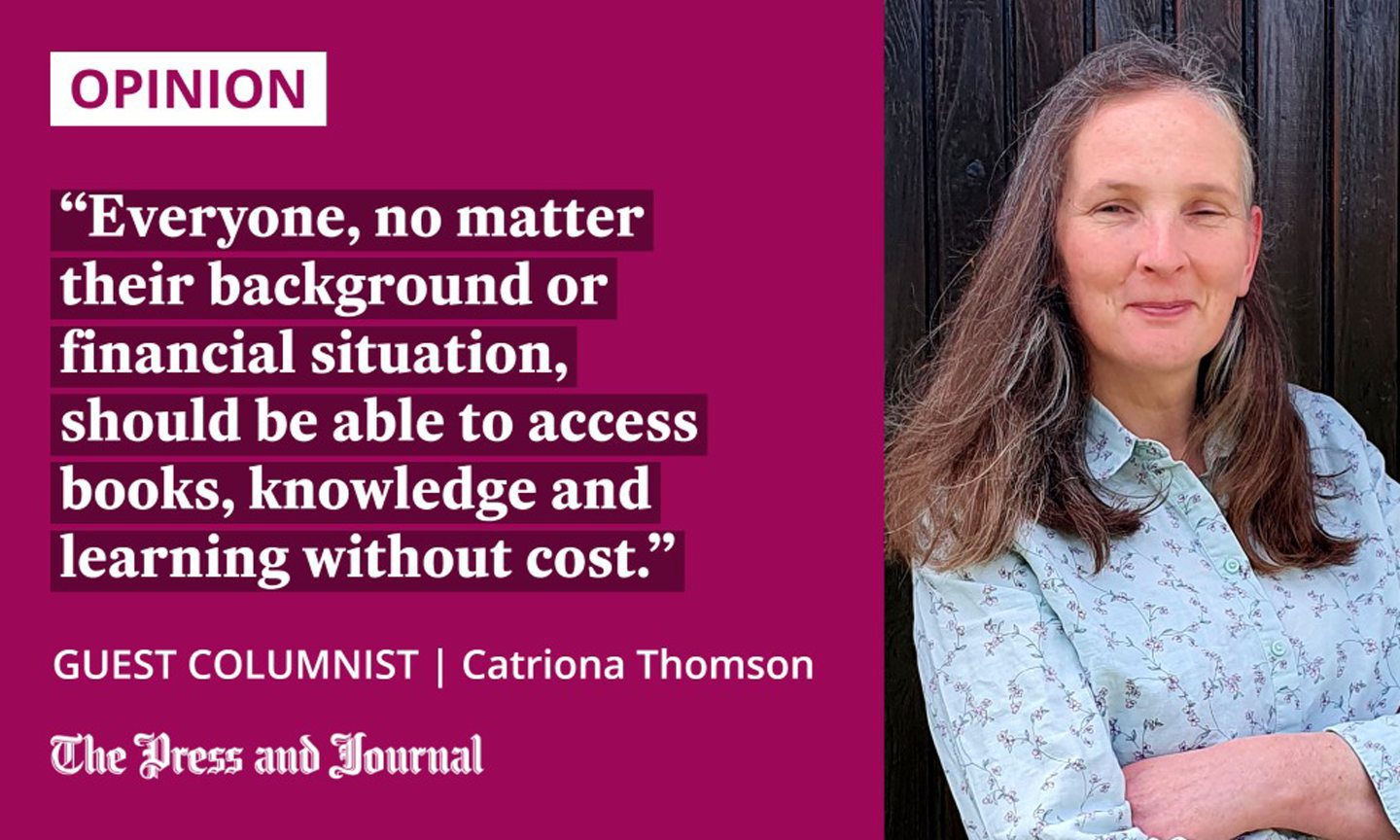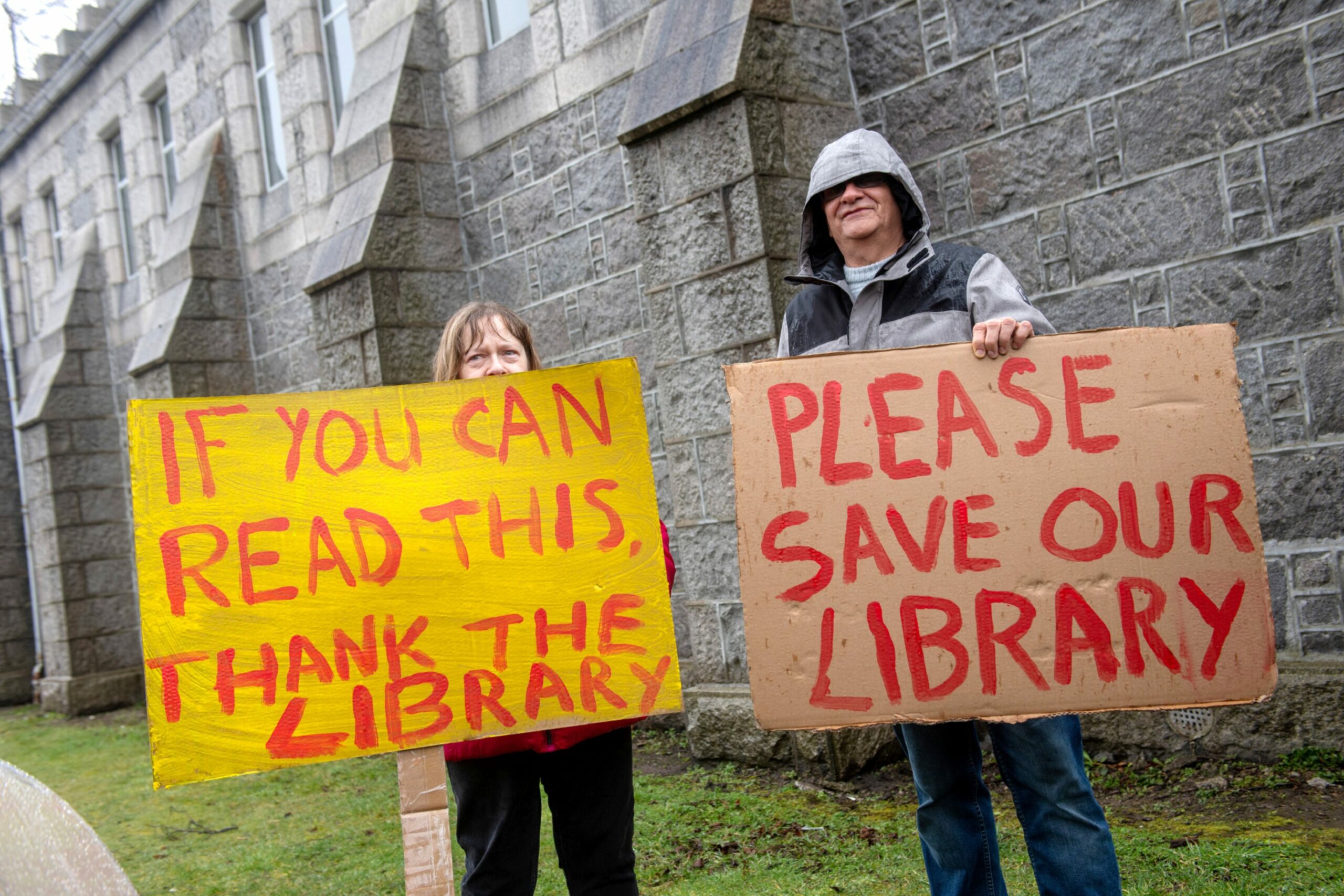I cannot be the only person who has experienced that utter sense of terror as you ransack your house, frantically searching for a missing library book, to avoid a fine.
I have always loved libraries. As a child, they provided me with a safe space where I could learn and escape into a world of others’ imaginations. They are places where you discover books that challenge your thinking, or make your mind dance with their ability to transport you from the humdrum of your daily existence.
Marc Lambert, CEO of Scottish Book Trust, puts it far better than I can. “Libraries have always been essential to a brighter future, and never more so than now,” he says. “Libraries are beacons of light, illuminating communities and individuals through all that they freely offer by way of books, information, learning, entertainment and enlightenment. Libraries build better lives full stop.”
But overdue fines disproportionately affect those who can least afford them. I’m fortunate that a small financial penalty won’t break the bank, but I know that for many it could. I believe everyone, no matter their background or financial situation, should be able to access books, knowledge and learning without cost.
Lambert highlights the importance of the service, saying, “They are as essential to the health and wellbeing of our communities as any other social service. Without libraries, communities will suffer and there is little hope of creating a better and more equal society.”

Pamela Tulloch, chief executive of the Scottish Library and Information Council (SLIC), adds: “Libraries play a valuable role in not only supporting education and literacy, but also promoting social inclusion, tackling inequality and reconnecting communities. This is more important than ever during the cost-of-living crisis where libraries are providing a safe haven for people struggling with increasing bills, including the cost of heating their homes.”
Forward: Scotland’s Public Library Strategy for 2021-2025 (published by the SLIC in August 2021) highlighted the belief that library resources and programming should be accessible to all, by removing all financial penalties for all borrowers.
Today, only six out of the 32 councils in Scotland still fine borrowers for overdue books. Most forward-thinking councils have relegated that to the past. According to Tulloch, “our library network in Scotland has seen the benefits of going ‘fine free’ in breaking down barriers and promoting equality – providing free, equitable access to a whole host of services including PC and internet access, activities and events, as well as book loans.
“The advantages of library use for people of all ages has never been more clear and experience from around the globe has shown that where library fines have been removed, both borrow numbers and the volume of books issued increases.”
Who really wants to be the last librarian charging late fees?
Currently, Aberdeen City Council libraries impose a maximum charge of £4 per item after five weeks, and neighbouring Aberdeenshire Council charges adults a maximum of £5.70. In Clackmannanshire, a maximum fine of £2.75 is charged per item for all users, and Inverclyde Council charges adults 10p per day, up to a maximum of £3 for each book.
North Lanarkshire charges 60p per week. The maximum amount an adult will be fined there is £6 after 10 weeks. Dundee City Council is actively reviewing its policy, but it is currently charging adults a maximum of £2 if an item is over five weeks late.
Pamela Tulloch wants to highlight that SLIC “are committed to supporting members and we hope the outstanding libraries will take this opportunity to re-evaluate and go ‘fine free’, allowing even more people to use their local services and rediscover the joy of reading without fear of financial penalty.
“The fact that only a few councils across the country still enforce fines today shows what an outdated concept this is. Library fines for late, lost or damaged books should be a thing of the past – and for most they are, with some services abolishing late fees more than a decade ago.”
I have no idea why the last remaining councils are dragging their heels and choosing fines over fairness, and income streams over equality – but I wonder which one will be the last to close the chapter?
Catriona Thomson is a freelance food and drink writer


Conversation